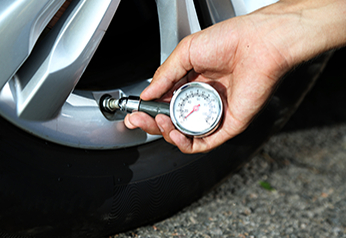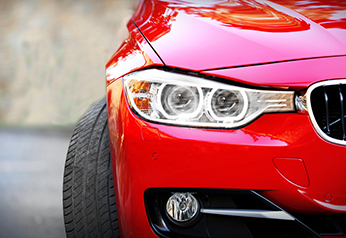
Nitrogen in Tyres
Anyone who’s had a flat knows the tyre doesn't carry the load...the air pressure inside it does! The right air pressure not only provides the appropriate load capacity, it lifts the tyre's performance, durability and contributes to the vehicle's overall fuel economy.
The correct ratio of gases to inflate your tyres with is 78-79% nitrogen (N2), 20-21% oxygen (O2) and 1% miscellaneous gases. But tyres exposed to extreme temperatures like plane tyres or racing car tyres use pure nitrogen. This is because nitrogen is an ‘inert’ gas, meaning it's non-reactive and property-free.

The basic advantage of having nitrogen in your tyres is that oxygen can be quite destructive to materials like steel and rubber. This is because the process of oxidation creates rusting and corrosion. Nitrogen being an inert gas, means the purer the nitrogen content in your tyre the less oxidation is likely to occur. Also, without the presence of oxygen, the condensation of water cannot form and you avoid any water related issues.
What are the benefits of Nitrogen for your car tyres?
Nitrogen reduces the tyre's Running Temperature
This relates to the moisture content of the inflation gas rather than just the use of nitrogen, as dry compressed air also produces a cooler running tyre. The greatest benefit for reducing the running temperature of your tyres from using nitrogen is when driving at maximum load and/or speed capacities.
Nitrogen improves Ride Quality
Though, there is no solid proof of a significant difference in the way air and nitrogen behave under normal tyre operating pressures and temperatures some specialists claim ride benefits.
Nitrogen increases Tyre Life
Because the operating temperature of a tyre plays a significant part in how rapidly they wear, temperature reduction at high speeds and loads are beneficial to the life of your tyre.
Nitrogen keeps Tyre Pressures more constant
This is because the pressure increases with the temperature of the tyre and nitrogen is said to provide a more stable pressure range in relation to tyre temperature.
Nitrogen slows the rate of Pressure Loss
Tyre liners and tubes are microscopically porous. As a result, air eventually leaches out. Nitrogen, due to being 4 times the size of an oxygen molecule is slower to leak out than compressed air. This means the loss of air pressure is slower.
Nitrogen doesn't react with the tyre and rim materials
As oxygen and moisture inside the tyre cause oxidation of the metal components, it is also said to react with the rubber of the tyre. Due to nitrogen being a relatively inert and dry element, this problem is reduced. Though, it should be mentioned, unless your tyre gets completely evacuated of oxygen before it is inflated with nitrogen, oxidation may possibly still occur.
The cost of Nitrogen
Cost
Nitrogen costs between $5 and $10 per tyre for a regular passenger car.
Maintenance
It's important that only nitrogen is used for top up purposes once you have started using pure nitrogen. Adding normal compressed air will negate any benefits of the nitrogen.
If you need to inflate your tyres and nitrogen is not available, normal compressed air will have to be added. But if you wish to re-inflate with nitrogen at a later stage then you need to deflate your tyre completely to start from scratch and then re-inflate it with pure nitrogen.
Availability
Nitrogen isn't readily available everywhere and is restricted to specialist tyre dealers.



